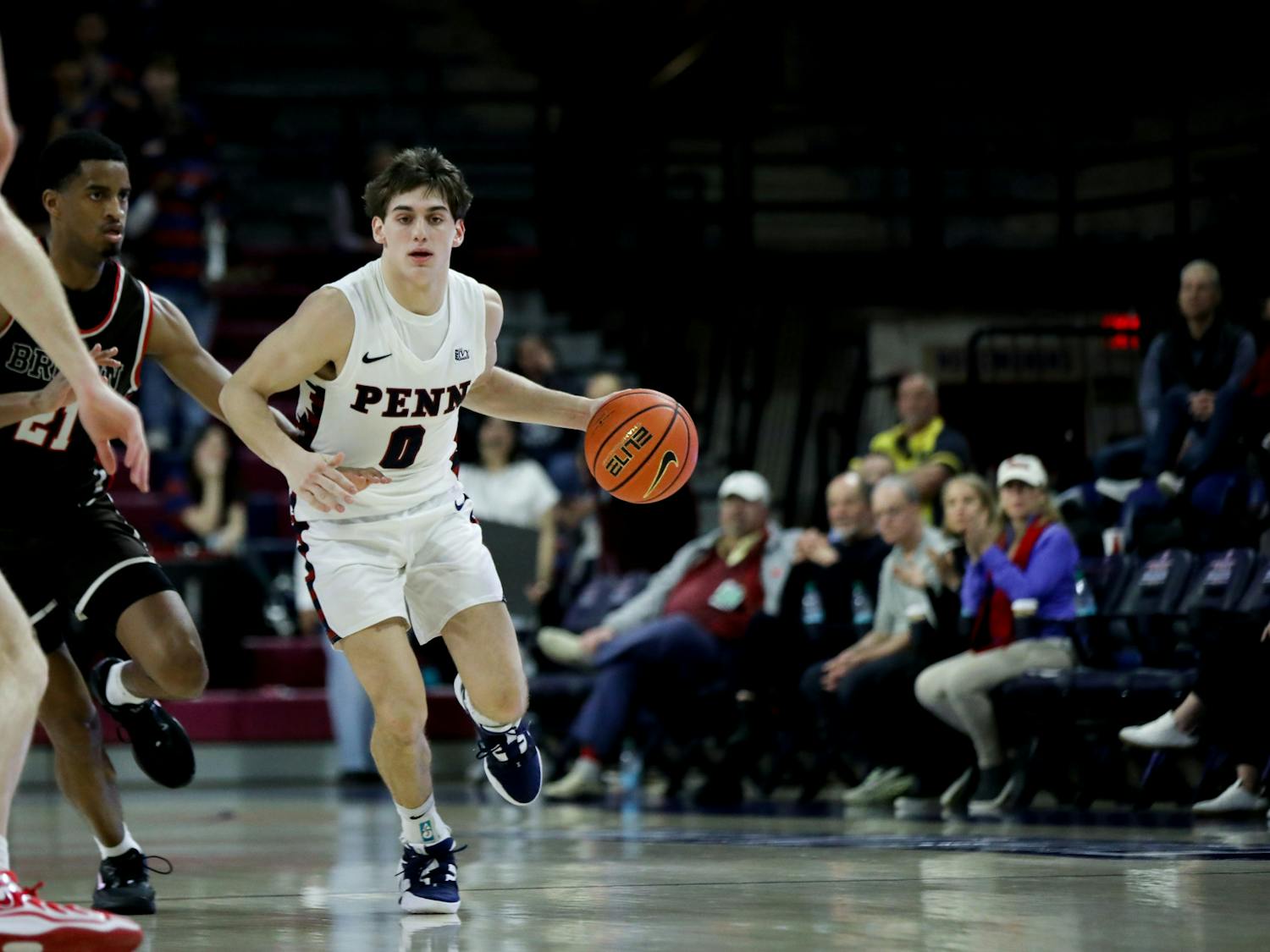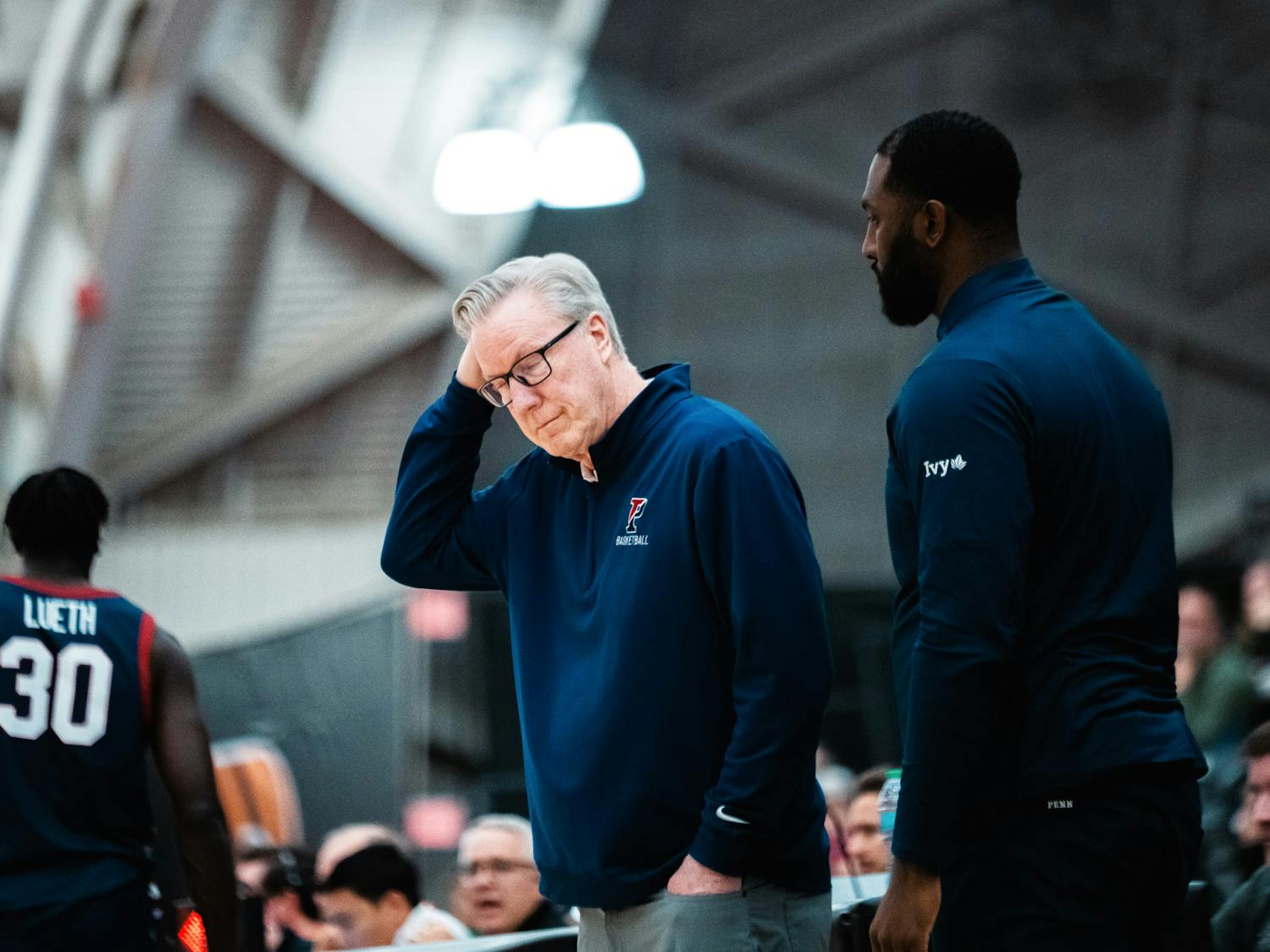The Penn men's tennis team arrived at the Princeton Invitational last fall with its rackets, its uniforms and an upbeat mentality. But something was conspicuously missing -- a coach. The Quakers had yet to fill the void left by the resignation of their former coach Gordie Ernst at the end of the spring season. Thus, the responsibility of holding the team together fell on the shoulders of senior co-captains Eric Sobotka and Rob Pringle. It was a daunting task for anyone, but the two veterans kept a calm head in handling the challenge. "You don't see a lot of collegiate teams rolling up in a van with eight dudes and no coach," Pringle said. "But everyone lifted their intensity. We did well and it was fun." Playing without a coach was just another obstacle in the duo's somewhat tumultuous collegiate careers. But, by then, Pringle and Sobotka were used to adversity. The co-captains were part of a large freshman class that came to Penn during a rebuilding year, but they arrived under very different circumstances. Sobotka was heavily recruited, while Pringle primarily chose Penn for its academics. It was only later that Pringle decided to continue his tennis career at Penn. Adversity first struck the pair when they were sophomores, as Gene Miller, Penn's tennis coach at the time, left the program. At the same time, the team's dedication and cohesiveness rapidly eroded. As a team, Penn was struggling, but individually, Pringle was waging a battle of his own. After a tough year adjusting to the rigors of collegiate competition, Pringle sustained a stress fracture in his back, an injury that took him out of competition for six months. The time off was a devastating blow to Pringle's steady improvement. The road back seemed all uphill, and Pringle often wondered if the effort was worth it. But through hard work and perseverance, he would re-establish his place in the line-up and record a 3-1 mark in Ivy League matches his junior year. "It's very easy to get discouraged when things aren't going well," Sobotka said. "But Rob was working harder than anyone else out there. It was an unbelievable turn-around. Unbelievable perseverance." Finally, things appeared to be looking up for the Quakers. In the fall of 1999, the team welcomed transfer Fanda Stejskal and freshman Ryan Harwood -- along with Ernst, its new coach. Ernst's reign, however, was short-lived. He departed after only two years. "We could have fallen apart completely, without direction," Penn junior Brian Barki said, referring to Ernst's departure. "But Rob and Eric got us organized." Indeed, the Quakers more than held together -- in some respects, they flourished. Penn advanced three players to the quarterfinals at the Princeton Invitational and recorded multiple victories over tough competitors from rival Ivy League programs. "I'm proud of the way we both responded, and how the team responded," Sobotka said. "When you put a lot of time into something and it works out, it's a good feeling." While Pringle and Sobotka largely credit their teammates for the Red and Blue's success, there is no question the pair played an integral role in keeping the team organized -- and in helping the Quakers adjust to the arrival of Mark Riley, who replaced Ernst at the end of September. "I just know that everything was intact when I got here," Riley said. "[Eric and Rob] were really helpful in helping me learn some of the personalities of the team and I've involved them in decision-making, which I haven't done with team leaders in the past." Perhaps what makes Pringle and Sobotka such an effective duo is their different styles and viewpoints, both on and off the court. Sobotka is fiery and impulsive -- a baseliner known for his intense and stingy style of play. Because he played at the No. 1 singles spot his sophomore year and at every spot in the line-up since, teammates admire Sobotka's selflessness and team-first attitude. "Eric has such a strong mentality," sophomore Harwood said. "Whatever coach though was best, he agreed with -- because he has that inherent quality of being a captain." Pringle, meanwhile, is no-nonsense and methodical, relying on a big serve and hard work to make up for where innate talent falls short. But while their styles may differ, the one thing they share is their passion and devotion to their team and to the game of tennis. "His love for the game really shines through every time he steps on the court," Pringle said of Sobotka. "I really respect the way he approaches the game." Sobotka, however, disagrees -- as usual. "He's talking about my passion, but really Rob's had one of the most admirable careers I can think of," Sobotka said. "I may have learned more from Rob than from most of my classes," Sobotka added with a smile. But while Sobotka and Pringle may not always concur, their teammates agree that they are more than just inspirational. "Eric and Rob are the heart and soul of the team and they compliment each other perfectly," Harwood said. "They are very big symbols of Penn men's tennis and will be even after they leave. Whoever is captain next year will know how to do it because of them."
The Daily Pennsylvanian is an independent, student-run newspaper. Please consider making a donation to support the coverage that shapes the University. Your generosity ensures a future of strong journalism at Penn.
Donate







